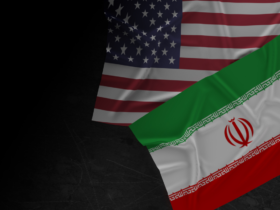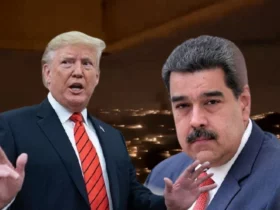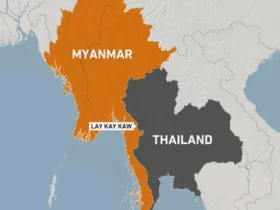Washington lacks the ability to create such a partnership, whereas Russia, China, Türkiye, Qatar, and even Iran (in the mid-term), can provide the foundations for a new architecture of stability.
Washington lacks the ability to create such a partnership, whereas Russia, China, Türkiye, Qatar, and even Iran (in the mid-term), can provide the foundations for a new architecture of stability.
By Mohammad Reza Moradi, General Director of Mehr News Agency’s Foreign Languages and International News Department
The recent trip of Ahmed al-Sharaa, the President of Syria, to the United States and his meetings with officials of that country have placed a serious question before Syria’s foreign policy: should Damascus enter a new path of engagement with Washington, or should it still, with calculated caution, regard the United States as an unreliable partner? At first glance, one might assume that rapprochement with the United States could open a window for reducing economic and political pressures, but historical experience and a closer assessment of U.S. policy show that strategic trust in Washington can impose heavy costs on Syria. In a context where the Middle East is facing new geopolitical rivalries, political realism requires that Damascus, through a deep examination of the interests of global powers, make a decision that guarantees the country’s future stability.
Lessons from the Past and the Changing Face of U.S. Policy
Although Washington presents itself as a reliable ally, its record in dealing with international partners tells another story. In its dealings with Libya after 2011, the first signs of such contradictory behavior became evident. NATO, led by the United States, intervened in Libya and brought about Gaddafi’s fall, but after the collapse of the central government, Washington quickly shifted its attention to other files and left Libya in a power vacuum. The consequence of this abandonment was the spread of chaos, the rise of armed groups, and the collapse of the country’s administrative structure. An analysis published in Foreign Affairs in 2023 described this situation as an illustrative example of U.S. foreign policy; one that always prioritizes domestic concerns over international responsibilities and leaves its allies alone at critical junctures.
The experience of Afghanistan after 2001 is one of the clearest illustrations of this issue. The post-Taliban government, which was built with billions of dollars in financial and military support from Washington, was effectively dependent on U.S. military and intelligence structures. But in 2021, the hasty U.S. withdrawal left the Kabul government in a security vacuum, and within 11 days the Taliban once again took control of Kabul. Reports published by American research institutions acknowledge that the withdrawal decision, taken without sufficient coordination, resulted in nothing but the collapse of America’s allies, severely undermining global trust in Washington’s capability and integrity.
On the other hand, Trump, or any other administration in the United States, can, with a single phone call, demand Tel Aviv to halt its attacks on Syrian territory, but experience has shown that Washington not only does not have such will, it actually views these attacks as part of “power management” in Syria. When a country is not willing even to ask its ally to moderate its behavior to the extent of stopping an airstrike, one cannot expect it to fulfill any enduring commitment in larger security issues.
The file of U.S. sanctions on Syria was another example of Washington’s lack of sustained sincerity. Although Trump in May 2025 spoke of readiness to ease some sanctions, neither the Caesar Act was repealed nor did the multilayered sanctions structure see any meaningful reduction. In fact, regarding the new Syria, U.S. economic and security decisions are made within a complex and multipolar framework, and there is no guarantee that political promises will be accompanied by practical actions. If sanctions, one of the tools of external pressure, remain unchanged, placing trust in Washington is effectively built on shaky ground that could collapse at any moment.
Which Countries Are Reliable Options for Damascus?
In contrast to this structural instability in U.S. policy, three major actors, Russia, China, and Türkiye, view Syria with long-term and stable motivations, and due to their fixed interests, they are considered more reliable partners for Damascus. The main difference lies in the nature of the interests. Washington has tactical and temporary interests in Syria, whereas Moscow, Beijing, and Ankara pursue structural and indispensable interests. This difference determines the future strategic orientation of Damascus.
Russia defines Syria as part of its security architecture in the Mediterranean. The naval base in Tartous and the air base in Latakia (Hmeimim) hold fundamental importance for Moscow and function as its only stable access route to warm waters. Moscow needs political stability in Damascus to maintain this access, and unlike the United States, which shows inclination toward changing regimes, Russia seeks the continuity of the central government and the strengthening of Syrian sovereignty. In the matter of the fall of Bashar al-Assad as well, Russia in recent years made great efforts to prevent change in the leadership of Syria, but a set of reasons ultimately led to the fall of Bashar al-Assad.
China, too, with a perspective different yet complementary, sees Syria within its strategic considerations. Beijing seeks to expand its geoeconomic presence through the Belt and Road Initiative, and Syria is regarded as a key point in connecting the East to the Mediterranean. Beijing seeks—through infrastructure projects, oil contracts, and investment in energy—to establish an economic foothold in Syria, and this presence is designed to be stable, gradual, and non-interventionist. Unlike the United States, China has no interest in regime change and views stability as the most important condition for its economic success. This very factor turns Syria into an attractive destination for Chinese investment and will give Damascus the opportunity to build long-term relations without fear of sudden abandonment.
Türkiye, for a completely different reason, is also among Damascus’s natural partners. For Ankara, the Syrian issue is not merely a foreign-policy file but one directly linked to national security. The refugee crisis, the activities of Kurdish armed groups, and the danger of shaping a corridor that would expand Israel’s influence from the Golan to the east of the Euphrates have led Türkiye to conclude that stability in Syria under a government aligned with its interests is vital for its own security. Economic relations between the two countries—from transit routes to trade and reconstruction—have the capacity for rapid revival, and this neighborhood creates a connection that neither the United States nor any extra-regional power can replace. From Ankara’s perspective, a strong central government in Damascus can form an important barrier against the influence of Israel and other non-regional actors. Also, unlike the United States, Türkiye is not involved in global hegemonic rivalry and seeks a stable regional order that ensures its economic and security interests. Syria is a vital, not tactical, variable for Türkiye.
Qatar, too, in recent years by adopting a pragmatic policy, has turned itself into a mediating and balancing actor in regional affairs. Unlike major powers whose interests in Syria are mostly security-related or geopolitical, Doha is more interested in economic dimensions, reconstruction, and diplomatic engagement. Qatar’s appropriate distance from direct conflicts can provide an opportunity for Ahmed al-Sharaa to use this country as a lower-risk partner—one with the capacity for mediation, investment, and creating channels of communication with the West and the Arab world.
On the other hand—and although Iran has not yet recognized the new Syrian government and Ahmed al-Sharaa, and Tehran–Damascus relations are currently severed—one cannot ignore Iran’s potential role in the future of Syria’s dynamics. Tehran considers Syria’s stability a determining factor in the security of the eastern Mediterranean’s borders and in regional balance. From this perspective, although current conditions prevent the formation of a formal relationship, Iran has an inherent motivation to prevent a power vacuum in Syria and to reinforce a stable central government there. Any future engagement between the new Syria and Iran will likely be shaped around realism and shared interests: border control, preventing the expansion of extremist groups, and reducing Israel’s influence. Full trust is not possible at the moment, but Iran could in the mid-term become one of the actors that—by emphasizing the consolidation of stability in Syria—provides the capacity for future cooperation.
Conclusion
The reality is that Syria’s future requires partnerships that guarantee security, stability, and economic reconstruction. With its fluctuating record, Washington lacks the ability to create such a partnership, whereas Russia, China, Türkiye, Qatar, and even Iran (in the mid-term), due to structural connections, long-term motivations, and shared interests, can provide the foundations for a new architecture of stability. Relying on these stable partners not only reduces sudden risks but also provides the opportunity for reconstruction and strengthening national sovereignty. Damascus must, by precisely understanding the actors and choosing partners that benefit from Syria’s stability, determine a more logical and lower-cost path for the country’s future. In fact, these countries can act and operate as Syria’s natural allies, and due to the alignment of interests and various issues, they will be more reliable partners for Syria than the United States.

















Leave a Reply